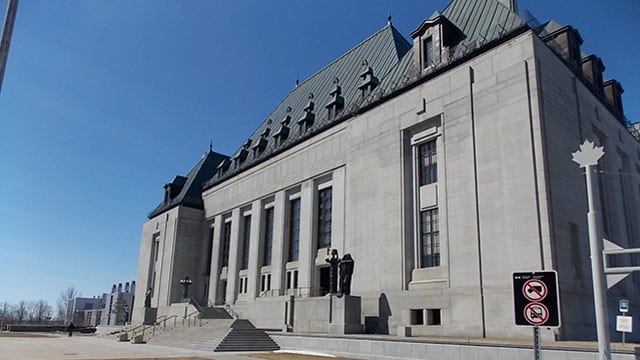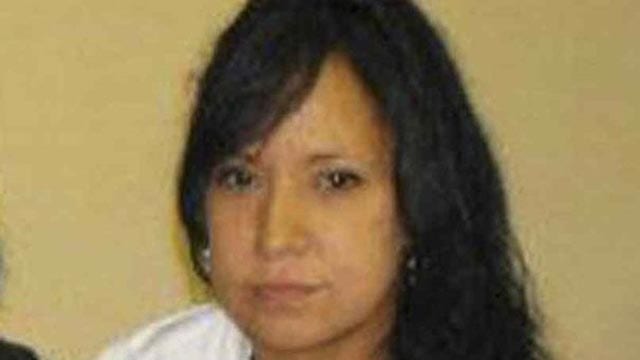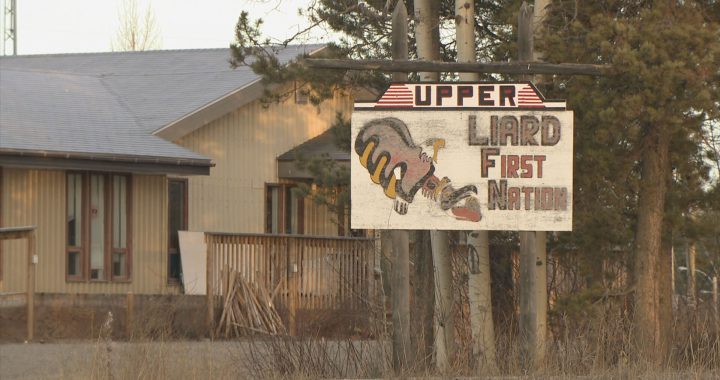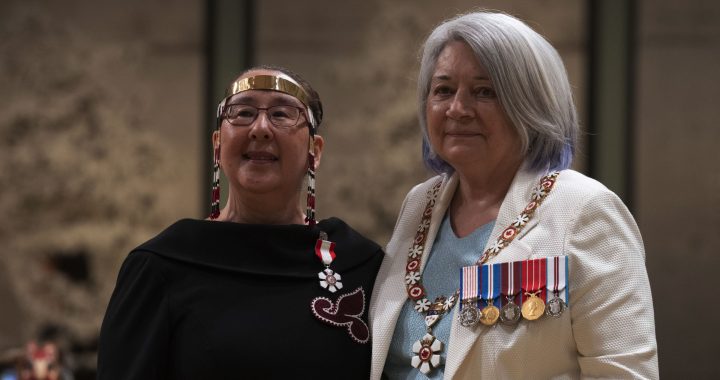
The Supreme Court of Canada will hear arguments this week in the case of Bradley Barton, accused of killing Cindy Gladue. File photo.
Canada’s criminal justice system is under intense scrutiny this week over its treatment of Indigenous people.
On Thursday the Supreme Court of Canada will hear arguments in an appeal of an Alberta court’s decision last year to order a new trial for Bradley Barton.
Gladue, a 36-year-old Cree woman, was found dead in an Edmonton motel room in June 2011.
She bled to death from an 11-centimetre wound in her vagina.
In 2015 Barton, an Ontario trucker who admitted to causing the wound and Gladue’s death—accidentally, he argued—was acquitted of first degree murder and manslaughter.
The decision prompted vigils and protests across Canada.
In a unanimous ruling last year Alberta’s Court of Appeal ordered a new trial based in part on the belief that the trial judge’s instructions to the jury were “inadequate to counter the stigma and potential bias and prejudice that arose from the repeated references to Gladue as a ‘prostitute’, ‘Native girl’ and ‘Native woman’” throughout the trial.
Those references, the three judges wrote in their decision, “implicitly invited the jury to bring to the fact-finding process discriminatory beliefs or biases about the sexual availability of Indigenous women and especially those who engage in sexual activity for payment.”
The 11-person jury consisted of nine men and two women, none of them Indigenous.
Cindy Gladue’s “dehumanizing treatment” indicative of justice system’s regard for Indigenous people
Women’s and Indigenous rights advocates say Canada’s criminal justice system is failing Indigenous people.
“The dehumanizing treatment of Cindy Gladue in this case raises critical issues, including of the law of consent, the mistreatment treatment of Indigenous women by the criminal justice system, and the pervasive problem of violence against women,” reads a joint press release this week from the Institute for the Advancement of Aboriginal Women (IAAW) and the Women’s Legal Education and Action Fund (LEAF), who are among 16 intervenors in the case.
“The trial of Bradley Barton is another, horrific example of a system designed to dehumanize and punish Indigenous women,” Julie Kaye, Research Advisor for IAAW, said in the statement.
During the 2015 trial part of Gladue’s preserved corpse was brought into the courtroom as evidence, a rare move that critics say represents the Canadian justice system’s regard for Indigenous women and their bodies.
“The introduction of Ms. Gladue’s actual vaginal tissue as evidence is the pinnacle of two things: how prostituted women are reduced to a mere sum of their body parts, and that our life’s total never figures into whether or not we choose prostitution,” Trisha Baptie of Formerly Exploited Voices Now Educating (FEVNE) said at a press conference on Parliament Hill Wednesday.
FEVNE is part of the Women’s Equality and Liberty Coalition (WELC), which is also intervening in the case.
“I am positive Ms. Gladue never gave her consent to live in poverty, to suffer the effects of colonization, to experience life as she understood it. If she had no ability to consent to the life she experienced, that moulded her, why do we think she consented to being a prostituted woman?”

This week the National Inquiry into Missing and Murdered Indigenous Women announced it too will intervene in the case.
“The death of Ms. Cindy Gladue and acquittal of Mr. Bradley Barton is emblematic of how Indigenous women are seen as less than worthy victims in general, but specifically within the justice system,” MMIWG Chief Commissioner Marion Buller said in a statement Tuesday.
“The National Inquiry has a legitimate interest in this case, and in ensuring the law of consent accurately takes into account issues that contribute to the violence and vulnerability Indigenous women and girls experience,” said Christa Big Canoe, the commission’s lead counsel who will be making oral submissions on behalf of the National Inquiry.
Potential for precedent on consent laws
Observers say the case could also set new precedent on consent laws in Canada, including whether an “objective likelihood of harm” cancels out sexual consent.
Lise Gotell, a gender studies professor at the University of Alberta and chairwoman of LEAF, says the court has previously ruled that a person killed in a fist fight couldn’t have consented to bodily harm.
“But the court has never made a ruling on whether or not this rule applies in a sexual context.”
Gotell says LEAF won’t argue for the new consent provision because it believes Gladue didn’t agree at all.
Barton has testified that he hired Gladue for two nights of sex that included putting his fist in her vagina. When he woke up after the second night, he said, he found her dead in the tub.
The Alberta Crown, as well as attorney generals in other provinces, including Ontario, is arguing for an addition to the law.
Barton’s lawyer, Dino Bottos, says it would be a big deal if the top court agrees. He plans to argue that the Crown brought up the consent versus harm argument on appeal, not at trial, and it shouldn’t affect his client’s case.
It would be akin to double jeopardy, Bottos says. “We’re just trying to hold the line.”
“The original trial exposed how much judges are ignorant in holding myths and stereotypes when it comes to victims of sexual assault. There was a complete lack of understanding of what consent means, the intention of consent laws, the application of consent when a woman is drunk and where her consent is not given to the particular act in place, and the power balance that undermines any real ability to have a voluntary agreement to have a consensual act,” Hilla Kerner of the Vancouver Rape Relief and Women’s Shelter said Wednesday during the WELC press conference in Ottawa.
Diane Matte of La concertation des luttes contre l’exploitation sexuelle, also a member of the Women’s coalition intervening in the case, said violence against women, “whether it’s in the sexual form or the physical form, has to end.
“And we have to recognize that racism and colonialism have, in this case, been matched once again by the ultimate misogynistic act of a man killing a woman.”
With files from the Canadian Press.










